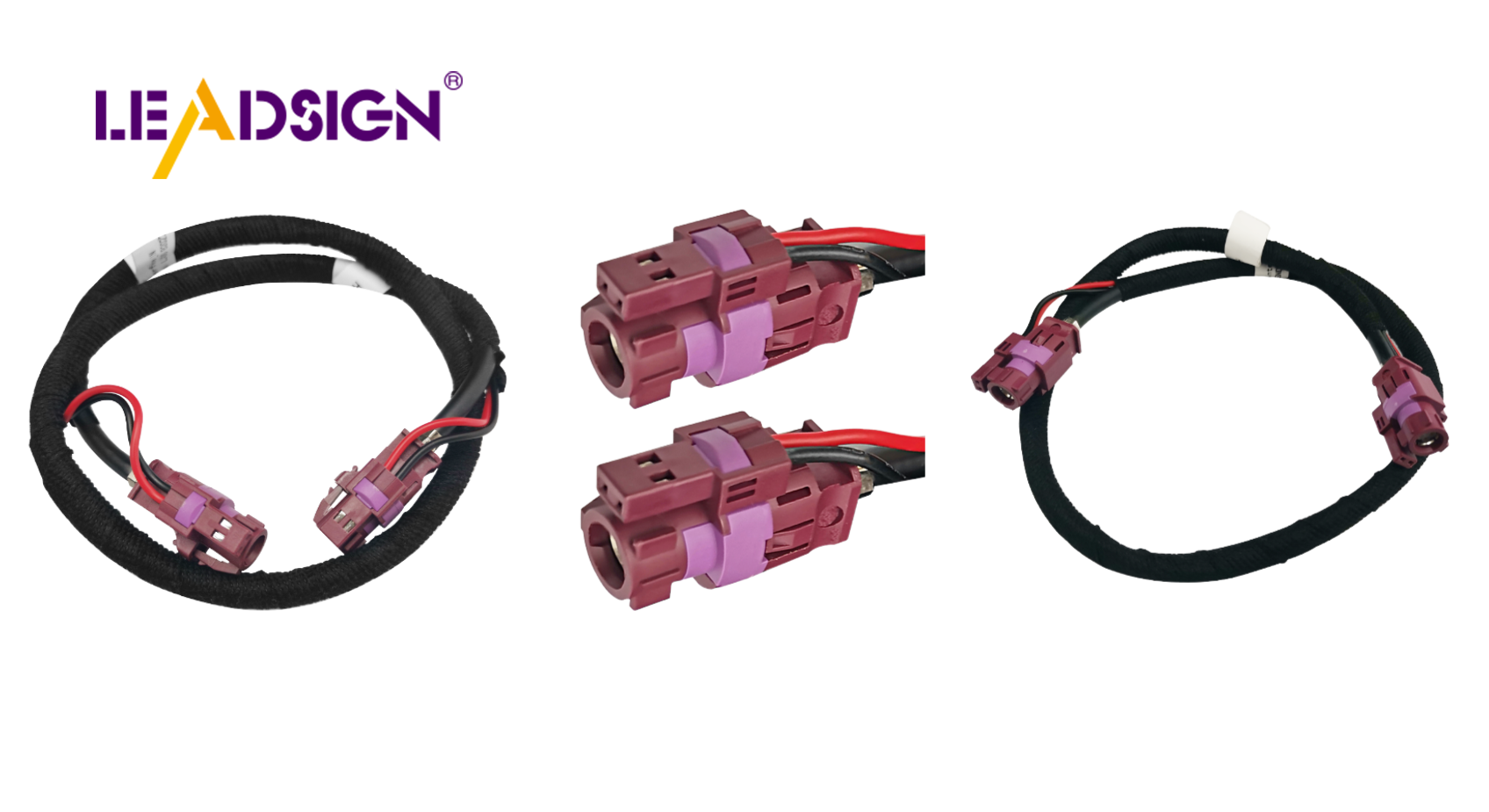Why Automotive Wire HSD LVDS Cables Enhance Vehicle Performance

Automotive wires play a crucial role in modern vehicles. As car technology rapidly evolves, superior auto wires are essential. HSD LVDS cables are pivotal to these advancements, supporting innovations such as electric vehicles and autonomous driving. Increased automation demands efficient data transmission, and HSD LVDS cables enhance vehicle performance by ensuring reliable data flow. This improvement leads to safer and more connected cars. The automotive industry embraces these innovations to satisfy customer expectations and comply with regulations.
HSD LVDS cables mean High-Speed Data Low-Voltage Differential Signaling cables. They are important in cars today. These cables help send data fast and use little power. They have special designs to stop interference, keeping data flow steady.
The RosenbergerHSD® system is a great example of these cables. It helps with high-speed data needs in cars. The cables work from DC to 6 GHz and have 100Ω impedance, making them fit many devices. They can handle temperatures from -40°C to +105°C, so they work well in different places.
Old car wires use single-ended signaling, which uses more power and gets more interference. HSD LVDS cables use differential signaling, saving power and keeping signals clear. Their design also stops outside noise better than old wires.
These cables have locks to stop unplugging by accident, unlike old wires. HSD LVDS cables are made for complex car systems that old wires can't handle.
HSD LVDS cables send data using two opposite signals, cutting down on interference. This makes them good for fast data needs in cars.
They use cheap twisted-pair copper wires for easy data sending with less noise or crosstalk.
In cars, HSD LVDS cables link electronic parts like infotainment and safety systems for smooth communication.
Advanced Driver Assistance Systems (ADAS) need these cables for quick data swaps needed in self-driving techs. They boost safety by giving strong communication paths.
Uses of HSD LVDS Cables in Car Electronics
Entertainment Systems
HSD LVDS cables change car entertainment systems. These wires work well with sound and video parts. This means passengers get great sound and pictures. The smart design stops interference, so the fun never stops.
Better User Experience:
Fast data helps smooth music and video streaming.
Good connections mean it works well on long trips.
Less signal loss keeps sound and picture clear.
Telematics Systems
Telematics needs wires like HSD LVDS cables a lot. They help with maps and staying connected in cars. The cables let car parts talk to each other fast.
Maps and Staying Connected:
Quick data makes GPS more accurate.
Strong links help phones work better for everyone.
Smart data use makes talking to road systems easy.
Effects on Safety and Saving Energy:
Good data flow helps safety tools like crash alerts.
Using less power saves energy in telematics.
Better links help manage traffic and plan routes.
Advanced Driver Help Systems (ADAS)
ADAS is a big step in car tech. Wires like HSD LVDS are key for these systems to work. They help swap data fast for self-driving cars.
Help for Self-Driving Cars:
Quick data lets sensors process info right away.
Strong links keep ADAS parts talking smoothly.
Low delay makes auto-driving react faster.
Boosts in Car Safety Tools:
Good data flow helps lane keeping stay precise.
Better signals lower the chance of losing important info.
New wire solutions make cars safer and smarter.
Benefits of Using HSD LVDS Cables
Faster Data Movement
Real-Time Data Processing Effects
HSD LVDS cables send data quickly. This helps cars process info fast. Quick data helps systems like maps and music. Fast data makes car parts react quickly to changes. This quick reaction makes driving better.
Vehicle Performance and Efficiency Gains
Fast data boosts how well cars work. Smooth data flow means less waiting for system actions. This helps save fuel and energy in cars. Cars with these cables run smoother. Better running means using less gas and making less pollution.
Stronger Signal Quality
Less Data Loss and Noise
HSD LVDS cables keep signals strong. They stop losing data and cut down noise. Twisted wires help reduce electric noise around them. Clear signals make safety tools work better.
Need for Good Car Communication
Good communication is key for new cars. HSD LVDS cables keep data moving well between parts. Strong links stop problems in car systems working together. This is super important for safety tools like ADAS.
Cost and Weight Savings
Comparing to Old Wiring Ways
Old wires are heavy and pricey. HSD LVDS cables are lighter options. They can cut costs by 80%. They weigh 30% less than old wires too.
Effect on Car Making and Design
Light cables change car design nicely. Less weight lets makers try new designs easily. It also helps make cars more aerodynamic, saving money in building them.
HSD LVDS cables are important in today's cars. They help send data quickly and keep signals clear, saving money too. These cables make entertainment, maps, and safety systems better, making cars safer and smarter. Car makers want lighter wires that bend easily. This helps save fuel and cut pollution. As car tech gets better, HSD LVDS cables will help new ideas grow in car wiring, meeting the need for strong and complex systems.
See Also
Benefits of LVDS Wiring in Automotive Systems
Improving Link with HSD LVDS Wires
Boosting Car Efficiency with HSD to USB 2.0 Wires
The Significance of LVDS/GVIF Wire in Car Info Networks
Improving Data Transfer: The Significance of Fast Auto Links

